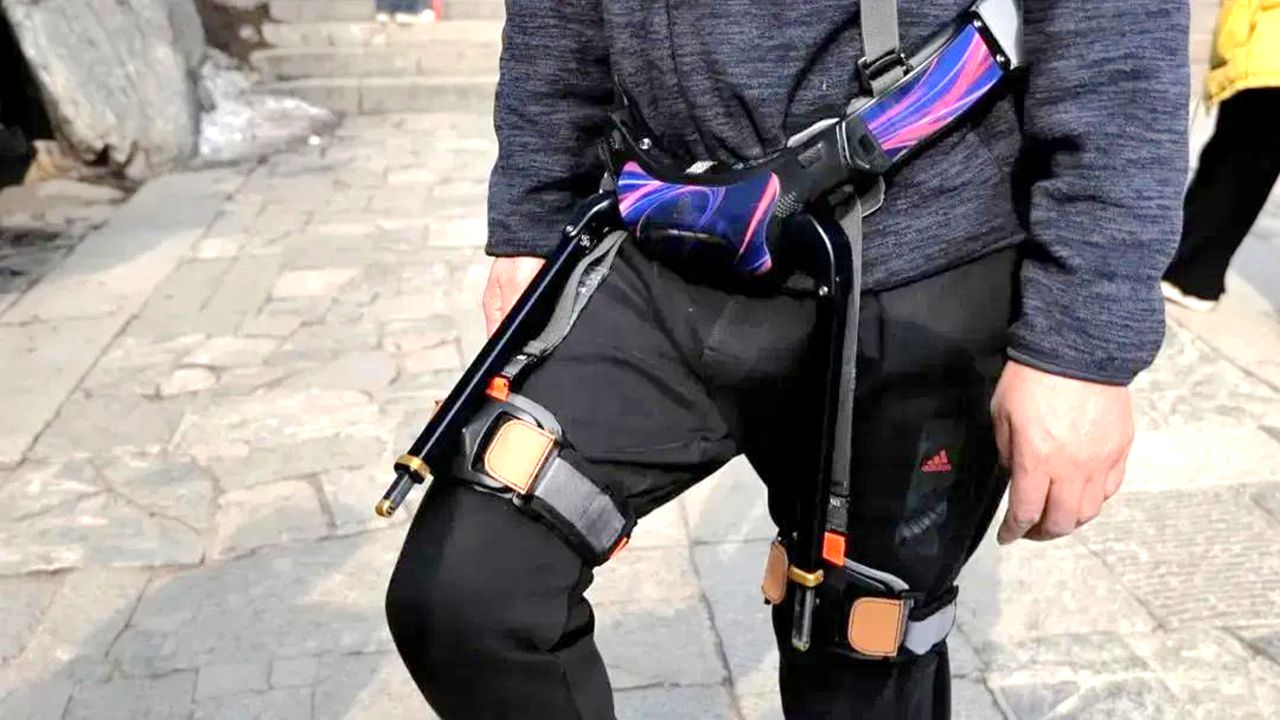SZ-made walking assist robot becomes a viral hit
Writer: Li Jing | Editor: Zhang Zhiqing | From: Original | Updated: 2025-02-05
A sports assistance robot, designed and produced by a Shenzhen-based startup tech company, went viral during the Spring Festival holiday after a video of tourists wearing it while climbing Mount Tai in Shandong Province was posted online.

A video clip shows tourists using the sports assistance robot π, developed by Shenzhen-based Kenqing Technology, as they climb Mount Tai in Shandong Province during the Spring Festival holiday. Photos from "深圳发布“ except otherwise stated
The video showed the tourists effortlessly ascending the mountain as if they were wearing "mechanical armor" from a sci-fi movie, drawing envious glances from onlookers.
The robot, named π, was developed by Kenqing Technology. Ten such devices were put into trial use for tourists on Mount Tai during the holiday and received a warm welcome from climbers, according to Yu Yunbo, CEO of the company.
Integrating core technologies such as ergonomics, power, electronics, and AI algorithms, the device can sense lower limb movement patterns and provide timely assistance, effectively reducing the burden on the legs and offering exercise protection for a more balanced cardiovascular workout.

A tourist wearing a “π” exoskeleton walking assist robot on Mount Tai. File photo
Weighing only 1.8 kilograms, the device is equipped with an internal motor capable of generating a peak power of 400 watts, making mountain climbing feel effortless. It can be worn in less than a minute by simply strapping the device around the waist and connecting it to both thighs with carbon fiber leg rods. The battery is replaceable, making it suitable for outdoor environments. The AI learning algorithm automatically adapts to walking habits, making it widely applicable across various aspects of daily life and work, Yu said.
It took the company 10 years to design the product, with its initial version weighing as much as 20 kilograms. Despite its comprehensive functionality, the initial version was too cumbersome for widespread use.
Compared to overseas-produced counterparts, which often cost tens of thousands of U.S. dollars, the π exoskeleton is priced at no more than 10,000 yuan (US$1,379), making it accessible to a broader audience.

A tourist (C) climbs Mount Tai with the assistance of robot π.
Yu emphasized the importance of Shenzhen's innovation ecosystem in the development of the exoskeleton. "Shenzhen is a fertile ground for innovation and entrepreneurship. When I first started my business, I only had a 200-square-meter space, yet the company attracted many graduates from top domestic universities. The entrepreneurial team was highly motivated, consisting of young people striving for their dreams. Together, we overcame innovative challenges to reach where we are today. Without starting in Shenzhen, it would have been difficult to build such a team," Yu said.